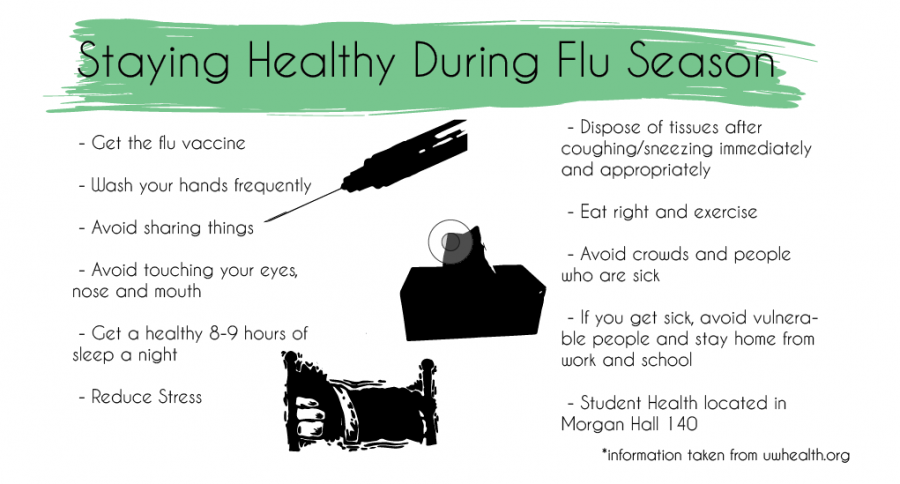“Super Flu” returns after 100 years
January 22, 2018
“A century after one of history’s worst disease outbreaks, scientists are rethinking how to guard against another super-flu like the 1918 global influenza that killed tens of million,” writes the Washington Post Jan. 17. It seems that the flu has returned with vengeance with the current most dominant strain of the virus, H3H2, causing deaths and hospitalizations.
{{tncms-inline content=”<p>&ldquo;A century after one of history&rsquo;s worst disease outbreaks, scientists are rethinking how to guard against another super-flu like the 1918 global influenza that killed tens of million,&rdquo;</p>” id=”a8c31070-7bee-4e7d-ad17-16bf93e4f91e” style-type=”quote” title=”Washington Post ” type=”relcontent”}}
“Between Jan. 7 and 10, there were 10 more flu-related deaths among children, bringing the total number of pediatric deaths to 30, according to the CDC,” The New York Post wrote.
They estimate that the virus hasn’t reached its peak yet, with the strongest strain a version of an “animal flu strain” which is estimated to be the next human threat.
Labs around the U.S. are working on ways to combat this “super flu,” such as a new type of vaccination that would could lead to only the elimination of the annual fall vaccine and instead require a shot once every five or 10 years.
Dr. Brahim Ardolic, chairman of emergency medicine at Staten Island University Hospital, told CNN, “There’s no question that the people who got their flu shots this year got less sick than the people who don’t.”
A universal flu vaccine has been designated as top priority for National Institute of Health (NIH) National Institute of Allergy and Infectious Disease.
Dr. Anthony Fauci of the NIH in Bethesda, Maryland says in an interview with “ The Columbus Dispatch,” “We have to do better and by better, we mean a universal flu vaccine. A vaccine that is going to protect you against essentially all, or most strains of flu.”
The outbreak of influenza has prompted Alabama Governor Kay Ivey to declare a state of emergency, the proclamation states, that due to the high number of sick patients “care may now no longer be provided in the traditional, normal, and customary manner nor is the utilization of traditional, normal, and customary standards of care possible.”
{{tncms-inline content=”<p>&nbsp;&ldquo;there&rsquo;s no question that the people who got their flu shots this year got less sick than the people who don&rsquo;t.&rdquo;&nbsp;</p>” id=”c03a778e-14f3-4b48-8511-8653f12f7da4″ style-type=”quote” title=”CNN” type=”relcontent”}}
Yet, the Washington Post writes, “Researchers hope they’re finally closing in on stronger flu shots, ways to boost much-needed protection against ordinary winter influenza and guard against future pandemics, or outbreaks in many countries.”



